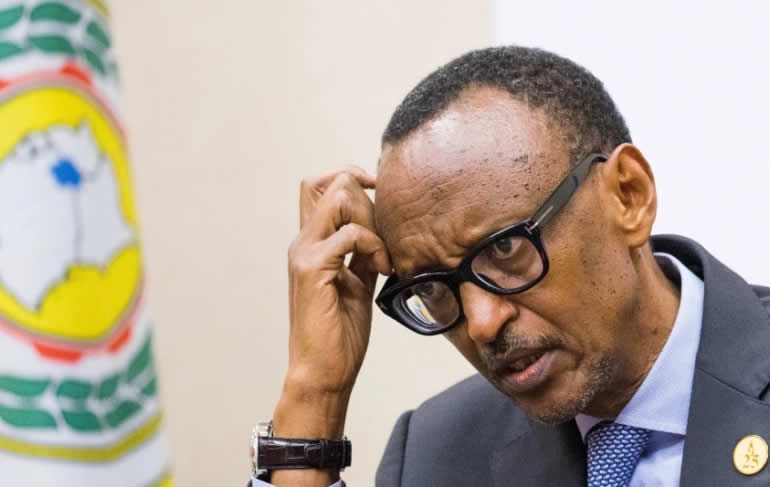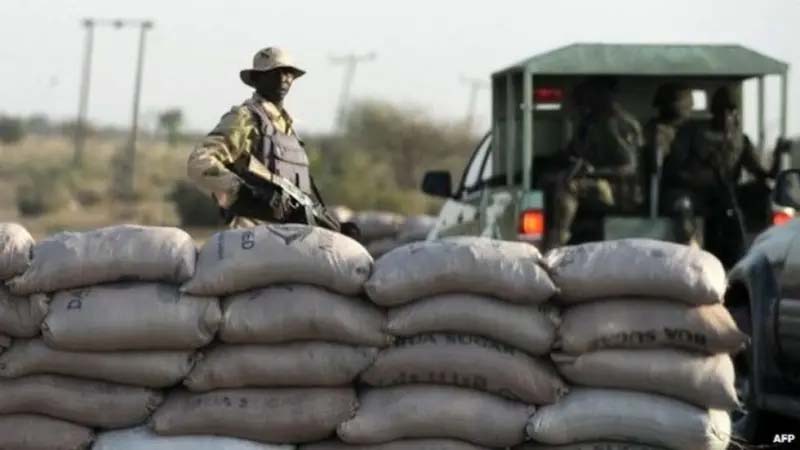LensAfrik Poll
“I don’t know much about Rwanda, but if it gets its acts right, it should be developing at a faster rate than Nigeria due to the stated reasons
Basic question on economic and human development of nations thrown at ordinary Africans in the street of Lagos and the answer is worth reading;
“What would benefit Nigerians is Paul Kagames strong intentional focus that has really been the game changer in Rwanda.
Charles Nu writes;
I am not an economist but I am an entrepreneur with a finger on the pulse of several African nations. And this is my take.
A lot of what is considered development in Rwanda is unfortunately just branding/marketing. Rwanda is a beautiful country and Kigali is the most organised city, in my view, in Africa. But at the end of the day, Rwanda is still very small and developing.
Per capita GDP is still about $700 while Nigeria is 10 times of that number. Combined with a youthful population, Nigeria is still far ahead in terms of potential by virtue of what she has going for her. Simply put, you can not compare the 2 countries and the Rwandan successes cannot be duplicated.
What would benefit Nigerians is Paul Kagames strong intentional focus that has really been the game changer in Rwanda.
Before I talk about the issues with Nigeria, let me talk about Rwanda and what we call development in Africa. It might sound to some like I am bashing Rwanda, I am not. I just believe strongly in facts.
I like Paul Kagames strong leadership and I admire what he has achieved in the last 18 years but is Rwanda really developing?
Can a nation really be said to be developing if a lot of this development is done by unsustainable loans from China? Can a nation be said to be developing when the purchasing power of its citizens is still one of the lowest on the continent? These are key factors that determine if a basic business can thrive in any given country and I have been to Rwanda on fact finding missions to see its business viability and unfortunately, it falls short.
That’s my view of Rwanda.
Nigeria is a vast country with massive opportunities. Population wise, Lagos alone is twice the size of all of Rwanda.
Every nation has tribal problems but I assure you that, that’s not one of Nigeria’s big problems. In my view, our problem boils down to 3 things; corruption but more importantly, mismanagement of resources. In my opinion and from what I see, its that simple.
In the last decade or so, Nigeria has not been able to elect individuals who have the political power like that of Paul Kagame and the willpower to steer things in the right direction, due to this weakness, Nigeria has been rendered broke, entered into an unnecessary recession and has been going backward ever since.
Buhari hasn’t been able to shore up the economy even slightly and if you’re an observer, you would see that our last election mirrored the peoples frustrations at the lack of options we have in our polity.
Nigeria is a country of extremely resilient individuals. Turning this country around will involve these individuals doing what they do but in a better economic environment.

Onwude Cosmas writes;
“Given good leadership, properly restructured Nigeria, culture of excellence over enthronement of ethnically motivated cult of Mediocrity, much less corruption, Nigeria can be catapulted from a third world country to a highly industrialized, first world country
(1) Ethnic rivalry and suspicion.
I give an example. Lagos (a state in the Western part of the country) ports are the only functional ports in Nigeria despite abundant evidences that ports in the eastern parts of the country should as a matter of urgency, be developed and opened up. These other ports are Warri, Port Harcourt and Calabar ports all located in the South South zone (part of old Eastern region). The fear is that if these ports are opened up, development in these areas will definitely be facilitated and Lagos would have serious competition economically speaking. Also, since majority of those who use the Lagos ports (importers) are Igbo from the former Eastern Region, the conspiracy to suppress the development of the Eastern ports is borne out of concerns that Lagos may lose its place as the economic hub of the nation if the ports begin to function. The Lagos ports are clearly overstretched, leading to months of intolerable traffic gridlock with the attendant colossal wastage, loss in time and productivity. Furthermore, there is incalculable wastage of time and resources in transporting goods from Lagos to the eastern parts what with bad roads, nonexistent rail network, police extortion at seemingly countless check points, armed robbery activities etc. What it really means is that prices of goods skyrocket as costs are deducted from selling these goods.
A serious nation would have fixed and opened up the Eastern Seaports to create jobs, drastically reduce wastage (of time and resources). Well, not in Nigeria, evidently for fear that the Igbo might benefit from using the ports and transform the east economically.
Due to ethnicity and tribalism, there is an ugly quota system in place in the educational system that is skewed to the North’s advantage. An average southern candidate is required to make 200 marks whereas their northern counterparts only need to make as low as 20 marks in some cases, to gain admission into the same university.
In the area of opportunities, someone from the North with much lower qualifications and skills is considered first before their compatriots from the South, no matter however more qualified they may be. This has enthroned a culture of incompetence, a cult of mediocrity which has resulted in retardation in almost all sections of our national life, because the situation does not stimulate healthy competition. There isn’t any need for excellence. Merit is sacrificed on the altar of nepotism, tribalism, ethnicity, etc.
In the whole of Southeast there is no functional airport despite the zone being the most enterprising in commerce and I dare say, industry. Federal roads in that region are death traps and there is virtually no federal presence. Regional govts can’t rebuild Federal roads because they are supposed to be in the federal exclusive list.
Therefore people survive here by sheer individual efforts. This is arguably the most industrious section of the nation so the repressive policies against the zone bear very negatively on the entire nation though nobody is willing to acknowledge this.
(2) Structure of the country
Nigeria is a pseudo federal state. None of the states is a federating unit in the true sense. Power is concentrated in the Centre such that each state goes cap in hand to Abuja for monthly handouts in the form of state allocations skewed to the advantage of States in the North which incidentally, contribute the least to the national treasury.
This policy emasculates the states, strangulates economic development and discourages creativity and productivity. At the same time, the Centre (Federal Government) is overburdened and cannot stimulate or bring about economic growth since the supposed federating units are weak and wait for the Centre for allocation of resources.
The states cannot utilize their natural resources, or even initiate important economic activities without permission from the Centre. This is due to the existence of an exclusive list and the need to keep the economic development of certain sections of the country in perpetual check.
If they happen to be part of the wrong section, permission is not given. Or if it’s given, they get frustrated with shockingly preposterous policies designed to cripple economic growth.
Under this arrangement, oil money from South southern part is distributed to all the zones. The Federal Govt cannot exploit all the natural resources, but at the same time, it won’t allow the States to utilize them. The result is lethargic indolence all over the nation.
Easy oil money won’t let government develop the steel, agricultural, solid mineral, tourism and oil sectors which the nation is abundantly blessed with. This is so much so that Nigeria exports crude oil and imports refined ones! In this way, it loses all the beneficial by products of the refining and still imports at a much higher price!
(3) Corruption
A combination of the above points led to corruption of unrivalled proportions in the country. Nigerian political office holders are among the highest paid in the world and for doing virtually nothing!
The innumerable perks of office warrants that seekers of such offices can go to any length to ‘win’ elections or get appointed into political positions. They can kill, steal, maim, loot, etc to get into offices only to loot more. Such ‘leaders’ are almost unaccountable for their actions in office unless they fall out of grace with the powers that be at the Centre.
Political offices are seen as means to instant, stupendous riches. Hence, it’s hard to see a patriotic Nigerian?
In the face of all of these, it takes a ‘fool,’ an incorrigibly gullible person to be patriotic in the country. It’s who gets what. Projects started by previous govts are abandoned by successive ones in pursuit of new ones because this would present opportunity to inflate figures and for embezzlement. People get into government solely to steal the nation blind!
(4) Bad leadership
The system (points listed above) throws up the worst individuals as leaders. The good ones often do not have what it takes to get into political positions and effect direly needed changes. Elections are rigged, ballot papers snatched at gun point, electoral figures doctored and falsified at collation centres to present results different from those announced at polling units etc.
The list is endless.
Nigeria has the potential to favourably compete with any nation on earth. It has abundant human and natural resources but the points listed above are a constant clog in the wheel of its development.
Given good leadership, properly restructured Nigeria (true federalism), culture of excellence over enthronement of ethnically motivated cult of Mediocrity, much less corruption, Nigeria can be catapulted from a third world country to a highly industrialized, first world country within 20 years, to be very moderate.
I don’t know much about Rwanda, but if it gets its acts right, it should be developing at a faster rate than Nigeria due to the stated reasons.






